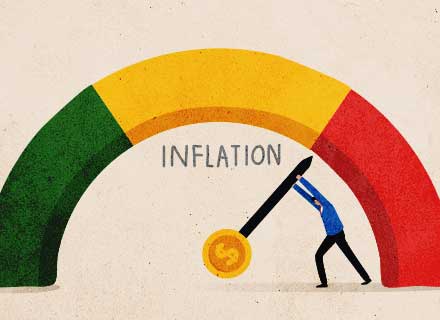Tackling inflation can prove to be a formidable task, but there are a number of strategies that can be used by individuals, businesses, and governments to minimize its impact. Inflation is characterized by the gradual increase in the pricing of goods and services within an economy over time. Here are ten effective ways to combat inflation.
Monetary Policy
Monetary policy is one instrument used by central banks to control inflation. This entails changing interest rates to control borrowing and consumer expenditure, which lowers inflation.
Fiscal Policy
Governments can also reduce inflation by adjusting taxes and spending. Tax increases and reduced spending by the government both work to lower inflationary pressure.
Supply-Side Policies
Inflation can be fought by promoting policies that expand the supply of goods and services. This includes lowering regulatory hurdles, streamlining operational procedures, and putting money into infrastructure to increase efficiency.
Wage & Price Controls
To prevent a sharp rise in prices and wages, governments can enact temporary wage and price controls. This strategy, nevertheless, is not always successful and may not be well-liked.
Currency Appreciation
A stronger currency may lower the cost of imports, hence lowering inflation. However, this can have a negative effect on economic expansion and exports.
Productivity Improvements
Encouraging businesses to invest in technology and workforce training can lead to increased productivity, which can result in stable or lower prices.
Competitive Markets
Encouragement of competition in various industries might stop businesses from using their pricing power excessively, assisting in the control of prices.
Inflation-Indexed Contracts
Promoting the adoption of contracts for wages, pensions, and financial instruments that are linked to inflation helps protect people and businesses from the decline in purchasing power.
Education & Communication
People may make wise judgments about how much to spend, how much to save, and how much to invest if they are aware of inflation and how it affects their money.
Diversified Investments
Over time, inflation devalues currency, therefore diversifying investments into assets like stocks, commodities, and real estate can serve as a hedge against inflation.

